- News
- Reviews
- Bikes
- Components
- Bar tape & grips
- Bottom brackets
- Brake & gear cables
- Brake & STI levers
- Brake pads & spares
- Brakes
- Cassettes & freewheels
- Chains
- Chainsets & chainrings
- Derailleurs - front
- Derailleurs - rear
- Forks
- Gear levers & shifters
- Groupsets
- Handlebars & extensions
- Headsets
- Hubs
- Inner tubes
- Pedals
- Quick releases & skewers
- Saddles
- Seatposts
- Stems
- Wheels
- Tyres
- Tubeless valves
- Accessories
- Accessories - misc
- Computer mounts
- Bags
- Bar ends
- Bike bags & cases
- Bottle cages
- Bottles
- Cameras
- Car racks
- Child seats
- Computers
- Glasses
- GPS units
- Helmets
- Lights - front
- Lights - rear
- Lights - sets
- Locks
- Mirrors
- Mudguards
- Racks
- Pumps & CO2 inflators
- Puncture kits
- Reflectives
- Smart watches
- Stands and racks
- Trailers
- Clothing
- Health, fitness and nutrition
- Tools and workshop
- Miscellaneous
- Buyers Guides
- Features
- Forum
- Recommends
- Podcast
£349.99
VERDICT:
Highly customisable GPS watch with a clear display, plus a couple of neat triathlon-specific features
Tailored to multi-discipline sports
Highly customisable
Clear display
No navigation
Weight:
53g
Contact:
At road.cc every product is thoroughly tested for as long as it takes to get a proper insight into how well it works. Our reviewers are experienced cyclists that we trust to be objective. While we strive to ensure that opinions expressed are backed up by facts, reviews are by their nature an informed opinion, not a definitive verdict. We don't intentionally try to break anything (except locks) but we do try to look for weak points in any design. The overall score is not just an average of the other scores: it reflects both a product's function and value – with value determined by how a product compares with items of similar spec, quality, and price.
What the road.cc scores meanGood scores are more common than bad, because fortunately good products are more common than bad.
- Exceptional
- Excellent
- Very Good
- Good
- Quite good
- Average
- Not so good
- Poor
- Bad
- Appalling
The Wahoo Elemnt Rival Multisport GPS Watch is a neat option with some really interesting – and successful – triathlon-specific features. It's also got a good customisable display and, despite a couple of peculiarities, it's pretty simple to use.
I'll dive right in with the key features, on the basis these will let you decide if the Wahoo Elemnt Rival is for you or not. If you're not impressed, you can move on with your life without knowing about the other details; no hard feelings.
Touchless Transition
Touchless Transition is the Elemnt Rival's most interesting feature, and it's a neat one. It gets your split times and discipline-specific information displayed for every leg of a triathlon, without you having to press anything during the race – just at the start and finish lines.
Usually, when using the Elemnt Rival you select what you're doing – running, cycling, lap swimming, open water swimming, or whatever – and during that activity, scroll through customisable pages of relevant data.
For instance, in cycling mode you can have elevation data from the barometric altimeter and wattage from any power meter you're paired with. This isn't relevant to swimming, and things like average stroke rate aren't relevant when you're on your bike, so the pages you use are very different.
In Triathlon mode, though, the Rival's 'motion detection algorithms' twig you've changed disciplines and serve you the right pages at the right time.
Touchless Transition also times everything for you. It can tell when you stop swimming, get out of the water, and start timing your transition. It then works out when you get on the bike, so it gives your T1 time and starts timing the bike leg; and so on.
Does it work? Yes. It has worked just fine every time I've tried it. The timer has to backtrack a little to the start of a discipline if it doesn't pick up the change immediately, but it has identified everything successfully throughout testing.
If the Elemnt Rival ever fails to switch between disciplines you can do it manually, and you can also undo a transition to revert to the previous leg, but I've never needed to.
Also, once your race is over and the data has synced to the Wahoo Elemnt companion app on your phone (I've been using the iOS version), you can edit it to reposition a transition for greater split-time accuracy. However, in my experience Touchless Transitions is a really good feature that works well.
Multisport Handover
Multisport Handover is another interesting feature for race day, but it's only an option if you have an Elemnt bike computer as well, and both things are paired to the same app.
You turn on your bike computer in the transition zone and select 'Multisport' from the menu. It then waits in low-power mode until you come into transition and the two devices are within range of one another. They automatically connect, allowing you to view all your data, or start a transition, on either device.
A page on your bike computer gives your swim and first transition times. As you finish the bike leg, you can mark a transition on either device or leave it up to the Touchless Transitions feature mentioned above.
> Cycle computers — everything you need to know
If you don't have an Elemnt bike computer, the Rival can broadcast your heart rate to third-party apps and computers.
Swimming features
When you're open-water swimming, the Elemnt bases your distance and pace on GPS measurements. When you're lap swimming and likely to be indoors, it bases everything on its motion sensors and the length of the pool you've entered into memory.
If you've told it you're in a 50m pool and its sensors say you've done 10 lengths, it'll say you've swum 500m and base your average time per 100m on that. If you've left your watch on the 25m setting from last week, it'll think you've done 250m.
You can switch between imperial and metric measurements via the app, but in the UK many people mix miles on the bike and metres in the pool. Thankfully, you don't need to swap between them every time; as long as the pool distance is entered in metres (you can choose between metres and yards), the data you get will be in metres, and it's recorded that way on the app too.
You can set up data as a mix of imperial and metric – you can have distance in miles and elevation in metres if you like.
The only complicating factor for many in Britain – where we can't get our imperial/metric story straight – is that you can't have cycling distance in miles and open-water swimming in meters without switching between them in the app. So, if you use the Triathlon workout feature mentioned above, distance is either yards and miles or metres and kilometres.
Optical heart rate sensor
The Elemnt Rival uses an optical heart rate sensor, which shines light into the skin and measures how it scatters – and how this changes as the blood pumps through – to deduce your heart rate.
Recent research says that "commonly used optical heart rate sensors [NOT the Wahoo one in particular] generally produce accurate heart rate readings... however, users should avoid relying entirely on these readings to indicate exercise intensities, as these devices tend to produce erroneous, extreme readings, which might misinterpret the real-time exercise intensity."
They work better on some people and skin types than others. I can only comment on my own experience, obviously, and used alongside chest strap HRMs the results have been pretty good for me, especially at low-medium stable intensities. There has been more of a discrepancy during hard intervals and flat-out efforts, though.
If you just want an average heart rate for your whole ride, the Elemnt Rival will be there or thereabouts, in my experience, but if you want gold standard heart rate monitoring, a chest strap is still the best option.
Other features
Wahoo has kept the Elemnt Rival clear and easy to use, rather than packing it to the rafters with extra functions.
Setup is easy once you've powered up the watch on its charger and downloaded the app (Android and iOS versions are available). All you need to do then is scan the QR code that shows on the watch screen, fill in some personal data, and you're good to go. You can also pair other sensors, such as a power meter or a chest-strap heart rate monitor.
You scroll through the pages using two buttons. You can choose from a whole variety of activities (which Wahoo calls 'workout profiles') and find default pages of data fields for each.
As an example, the default for cycling gives your speed, ride duration and distance on one page, lap data on the next page, heart rate info on the third page, and elevation on the fourth.
This is all customisable via the Wahoo Element app. If you're not interested in elevation data, turn it off. You can also add your own custom pages. You could include power and cadence info, for instance, assuming you have the relevant sensors.
You can delete workout profiles that don't interest you via the app. If you don't do yoga you can just remove the option. You might as well keep the place tidy. You can also add your own workout profiles – cheese rolling, wife-carrying... I don't know what you people get up to – and populate them with pages of your choice.
Setting all this stuff up via the app is easy. You just select what you want to show, drag it into an order you like, and ditch anything else.
You can alter virtually all the settings via the app. That said, I spent ages trying to change swimming pool length in the app, with no success. You have to do it on the watch, and navigation there isn't as intuitive. Either that or I'm getting thicker with age.
Once you've finished your activity, data from the Elemnt Rival automatically uploads to your phone. You can check out the data in reasonable depth – some of it in graphic form – but for serious analysis and comparison over time, you'll want to send the data on.
You can do this either automatically or manually after you've reviewed it, and send it to Strava, TrainingPeaks, or another third-party app.
> 13 best cycling GPS units — get ride data and bike satnav from £50
You can also set it so the Elemnt Rival receives phone messages, controls music/podcasts you're playing (on iOS), answers Skype calls... but there's plenty it can't do. You don't get any navigation/mapping here, for instance, there's no way of following structured training sessions. It also lacks sleep tracking.
Nuts and bolts
The Wahoo Elemnt Rival has a nylon polymer case, a ceramic bezel, and a Gorilla Glass scratch-resistant lens. The silicone strap has 23 holes (yeah, I counted 'em; you're welcome) to keep it secure on a whole range of wrist sizes. The 53g weight isn't particularly noticeable in use.
The diameter is 46mm, with a display size of 30.4mm (1.2in) across. The screen is 64 colour with a 240 x 240 resolution.
It's in no way as Technicolor-bright as something like an Apple Watch, but the display is clear enough for legibility and you can set it to automatically change between light and dark modes depending on light level. If you're struggling, you can press a button to turn on the backlight.
You also have the option of what Wahoo calls Perfect View zoom when you're looking at data fields, allowing you to have just one field displayed large, or up to six shown much smaller.
Runtimes
The only other thing in the box is the charger, which has a little clip to hold the watch firmly in place.
Stay in watch mode and the Elemnt Rival will run for up to a fortnight, but GPS mode shortens that dramatically to around 24 hours (it actually uses both GPS and GLONASS). Still, that's plenty for the vast majority of us.
Speaking of GPS, it always picked up a signal within a few seconds of going outside, and it's never had any strange dropouts.
Price
Unlike the Elemnt Rival, the Suunto 5 GPS Sports Watch we reviewed last year (was £299, now £227) offers GPS navigation and goal alerts, although Simon didn't find the heart rate function particularly reliable.
Mike liked Garmin's Fenix 6 Pro Solar earlier this year, finding the turn-by-turn navigation particularly useful. On the other hand, he said the user interface was bewildering. Oh, and there's the price: £730 when reviewed, now £680.
We've not reviewed the Garmin Forerunner 745 (£399.99) but it is preloaded with activity profiles for running, swimming and triathlon as well as cycling, plus it offers point-to-point navigation.
None of these options offers the Elemnt Rival's Touchless Transition feature.
Overall
The Wahoo Elemnt Rival is a really good multisport-specific GPS watch that's easy to customise and clearly legible whatever your activity. Touchless Transition's automatic timing of your splits is the headline feature here, and if that floats your boat, this is a very good buy.
Verdict
Highly customisable GPS watch with a clear display, plus a couple of neat triathlon-specific features
road.cc test report
Make and model: Wahoo Elemnt Rival Multisport GPS Watch
Size tested: 46.5 x 46.5 x 15.3mm
Tell us what the product is for and who it's aimed at. What do the manufacturers say about it? How does that compare to your own feelings about it?
Wahoo says, "A radically simplified multisport GPS smartwatch that delivers a seamless performance advantage.
"ELEMNT RIVAL Multisport Watch keeps the focus locked on your performance, not your equipment. Using the intuitive ELEMNT operating system, RIVAL GPS smartwatch delivers a simple user experience. Unique multisport features like Touchless Transition, Multisport Handover, and Perfect View Zoom create a seamless performance advantage whether training for a race or competing. Designed with a 64-bit colour screen, ceramic bezel, and gorilla glass lens, the ELEMNT RIVAL smartwatch not only looks great for everyday use but will also withstand your hardest workouts."
Tell us some more about the technical aspects of the product?
Wahoo lists these specs:
Dimensions 46.5 x 46.5 x 15.3 mm
Display Size 1.2 in (30.4 mm) diameter
Display Type Color
Display Resolution 240 x 240
Lens Material Gorilla Glass
Bezel Material Ceramic
Case Material Nylon Polymer
Strap Material Silicone
Strap Length 10 in (25.4 cm)
Fits wrist circumference 140 mm - 240 mm
Weight 53 g
Battery Rechargeable Lithium-Ion
Battery Life Smartwatch Mode: 14 days
GPS or HR Mode: Up to 24 hours
GPS Functionality Built-in
Supported Satellites GPS and GLONASS
Water Rating 5 ATM (water-resistant up to 50 meters)
Perfect View Zoom Buttons
Ambient Light Sensor
Wireless Connectivity ANT+ and BLUETOOTH
Sensor Compatibility ANT+, BLUETOOTH, and ANT+ FE-C
Phone Compatibility iPhone and Android
Altimeter
Compass GPS based
Accelerometer
Time/Date
GPS Time Sync Via ELEMNT Companion App
Automatic Daylight Savings Time Via ELEMNT Companion App
Timer
Stopwatch
Companion App Setup
Customizable Screen
Alerts Call, Text, and Email (email notifications on iOS only)
Live Tracking Via ELEMNT Companion App
Automatic Workout Uploads
Step Counter
Calories Burned
Distance Traveled
Workout Time
Weekly Swim / Bike / Run Distance
Activity Profiles Indoor Cycling (KICKR), Outdoor Cycling, Running, Treadmill, Lap Swimming (Pool), Open Water Swimming, Strength, Yoga
HR Zones
HR Calories
HR Broadcast
GPS Speed & Distance
Customizable Data Pages
Customizable Activity Profiles
Auto Pause
Auto Lap
Manual Lap
Audio Prompts
Finish Time
Auto Multisport Activities
Manual Multisport Activities
Button Lock
Activity History on Watch
Activity Apps Strava
Indoor Trainers Wahoo Smart Trainers and ANT+ FE-C equipped trainers
Rate the product for quality of construction:
8/10
Rate the product for performance:
8/10
Rate the product for durability:
7/10
Gorilla Glass screen is scratch-resistant, and the ceramic bezel adds some protection.
Rate the product for weight (if applicable)
8/10
Rate the product for comfort (if applicable)
9/10
The low weight and soft silicone strap help here.
Rate the product for value:
5/10
Five is 'average' on our marking system, and I'd say that's about right. Your buying decision rests on whether you'll use the Touchless Transition and/or the Multisport Handover features.
Tell us how the product performed overall when used for its designed purpose
Initial setup via the app is simple. I didn't find navigating the watch particularly intuitive in a couple of instances, but you get the hang of it pretty quickly and then don't give it a second thought.
Tell us what you particularly liked about the product
Touchless Transitions is a clever feature and the companion app is pretty simple.
Tell us what you particularly disliked about the product
There's no navigation, and it's a touch light on features compared with some rivals.
How does the price compare to that of similar products in the market, including ones recently tested on road.cc?
Unlike the Elemnt Rival, the Suunto 5 GPS Sports Watch we reviewed last year (was £299, now £227) offers GPS navigation and goal alerts, although Simon didn't find the heart rate function particularly reliable.
Mike liked Garmin's Fenix 6 Pro Solar earlier this year, finding the turn-by-turn navigation to be particularly useful. On the other hand, he said that the user interface was bewildering. Oh, and there's also the price: £730 when reviewed, now £680.
We've not reviewed the Garmin Forerunner 745 (£399.99) but it is preloaded with activity profiles for running, swimming and triathlon as well as cycling, and it offers point-to-point navigation.
None of these options offers the Elemnt Rival's Touchless Transition feature.
Did you enjoy using the product? Yes
Would you consider buying the product? Consider, certainly
Would you recommend the product to a friend? I'd tell them to have a serious look
Use this box to explain your overall score
The Wahoo Elemnt Rival puts in a very good performance thanks to its multisport tailored features. If you race triathlon, definitely take a good look. It's not cheap, but the strong performance elsewhere earns it an 8 overall.
About the tester
Age: 48
I usually ride: My best bike is:
I've been riding for: Over 20 years I ride: Most days I would class myself as: Expert
I regularly do the following types of riding: commuting, club rides, sportives, general fitness riding,
Mat has been in cycling media since 1996, on titles including BikeRadar, Total Bike, Total Mountain Bike, What Mountain Bike and Mountain Biking UK, and he has been editor of 220 Triathlon and Cycling Plus. Mat has been road.cc technical editor for over a decade, testing bikes, fettling the latest kit, and trying out the most up-to-the-minute clothing. He has won his category in Ironman UK 70.3 and finished on the podium in both marathons he has run. Mat is a Cambridge graduate who did a post-grad in magazine journalism, and he is a winner of the Cycling Media Award for Specialist Online Writer. Now over 50, he's riding road and gravel bikes most days for fun and fitness rather than training for competitions.
Latest Comments
- kcr 4 sec ago
I think Livingston (no "e") has the best cycling infrastructure I have seen in Scotland. It has an extensive network of paths that are actually...
- kcr 39 min 38 sec ago
I'd say it is an extremely rare condition for most cyclists or runners.
- ErnieC 3 hours 25 min ago
or Team Bahrain ... selective outrage.
- newbankgyratory 4 hours 27 min ago
This website offers suitable data: https://www.automobiledimension.com/large-suv-4x4-cars.php
- newbankgyratory 5 hours 26 sec ago
Perhaps park the goods in a US Customs Bonded warehouse and then import them out of there when the tariff nonsense settles down?...
- Dnnnnnn 2 hours 56 min ago
Good to see a road.cc review of what must be one of the UK's best-selling 'proper' road bikes....
- PRSboy 5 hours 55 min ago
Another thing ruined by the Americans
- Miller 7 hours 14 min ago
Nice to see WvA featuring in the finale.
- Miller 7 hours 17 min ago
I have known more than one elder statesman of the club die of a heart failure while out on a ride. Sometimes I feel that's about to happen to me,...
- Pub bike 7 hours 34 min ago
Via the "wireless active steering system".













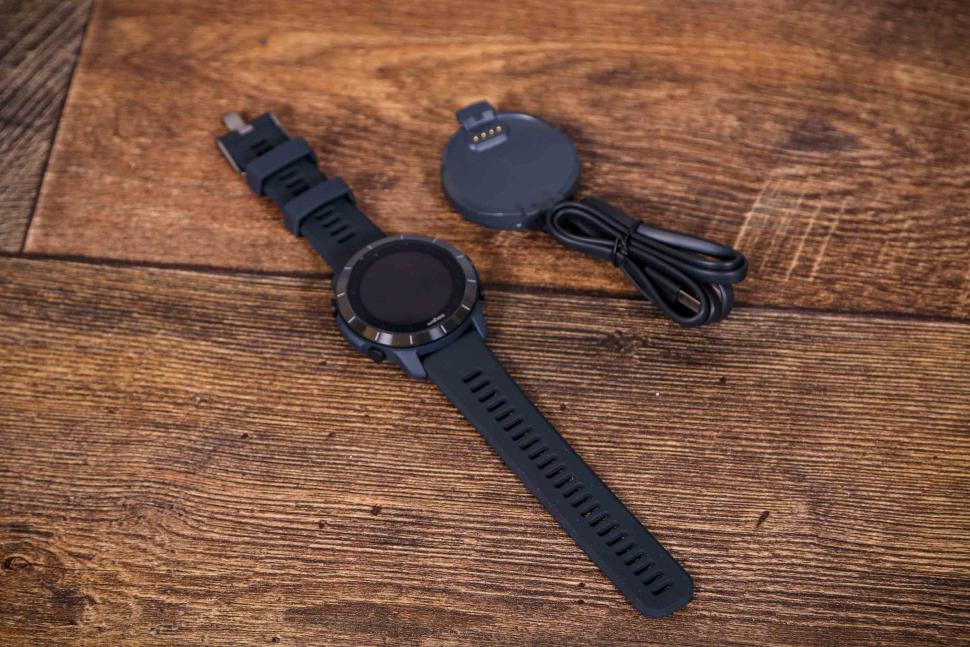
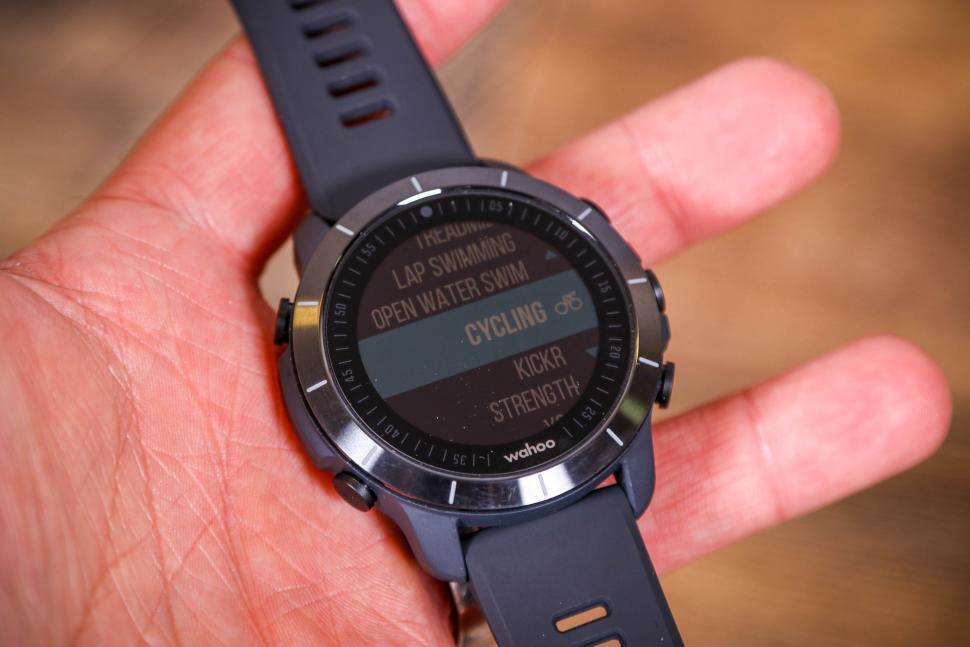
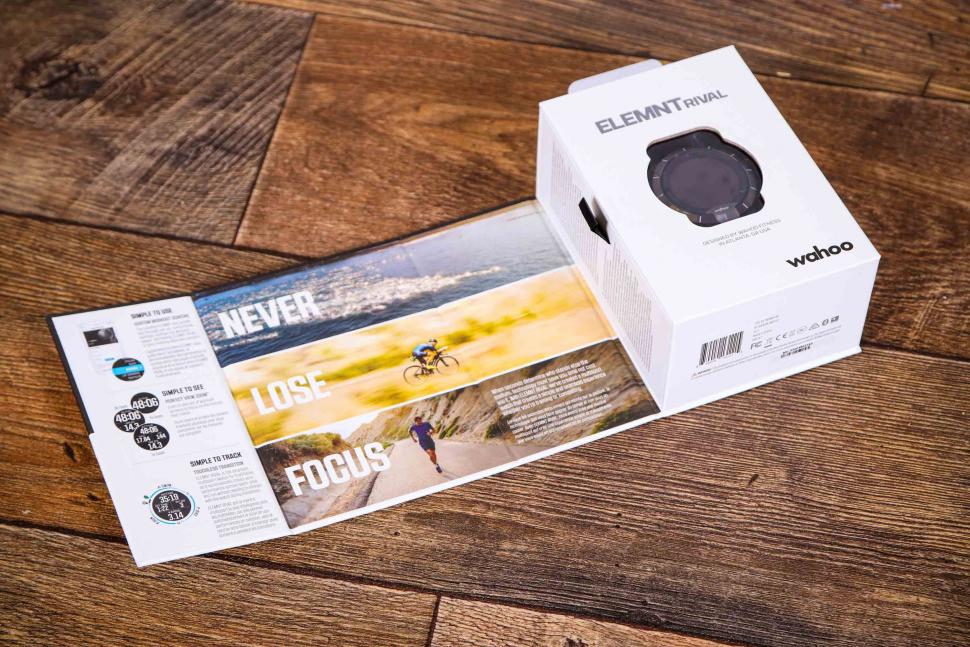
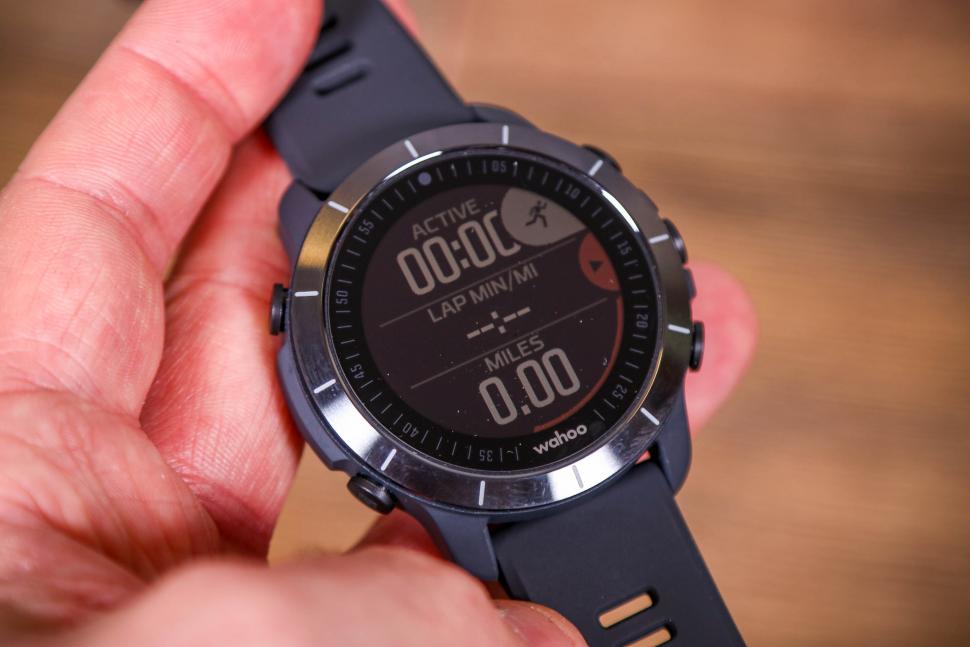
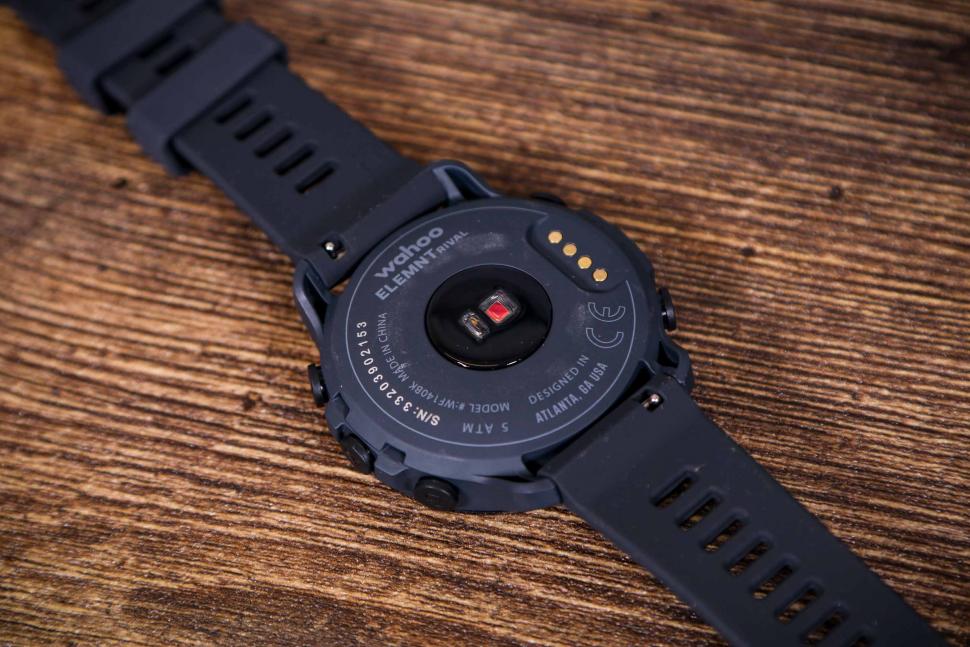
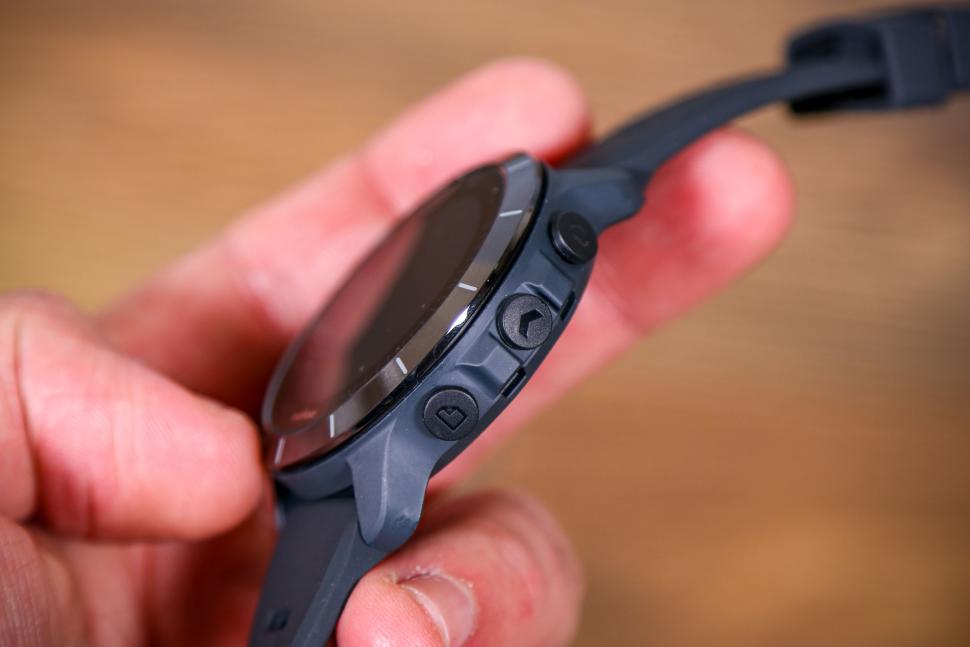

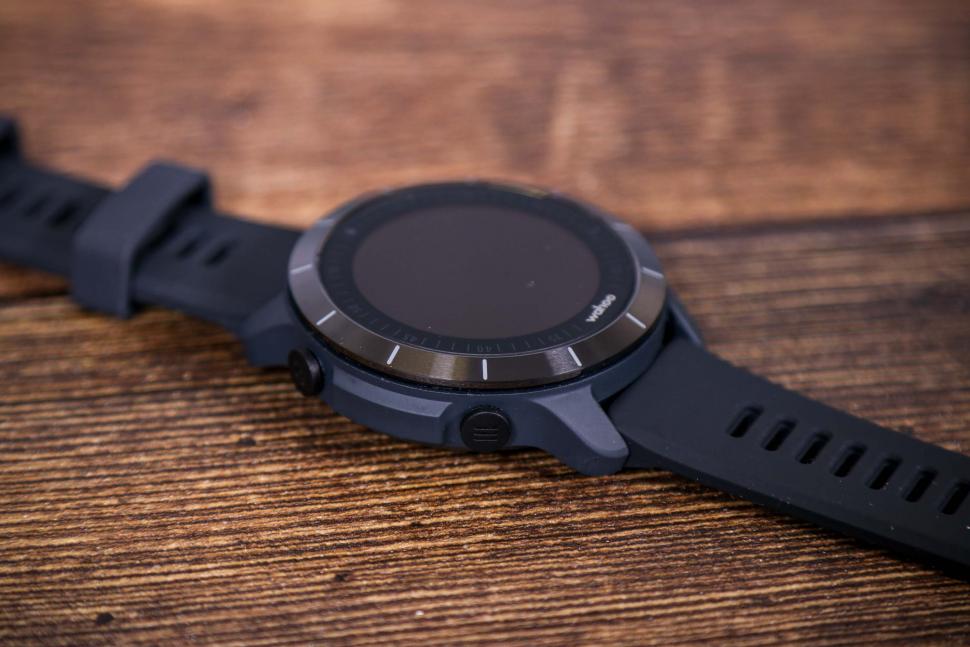
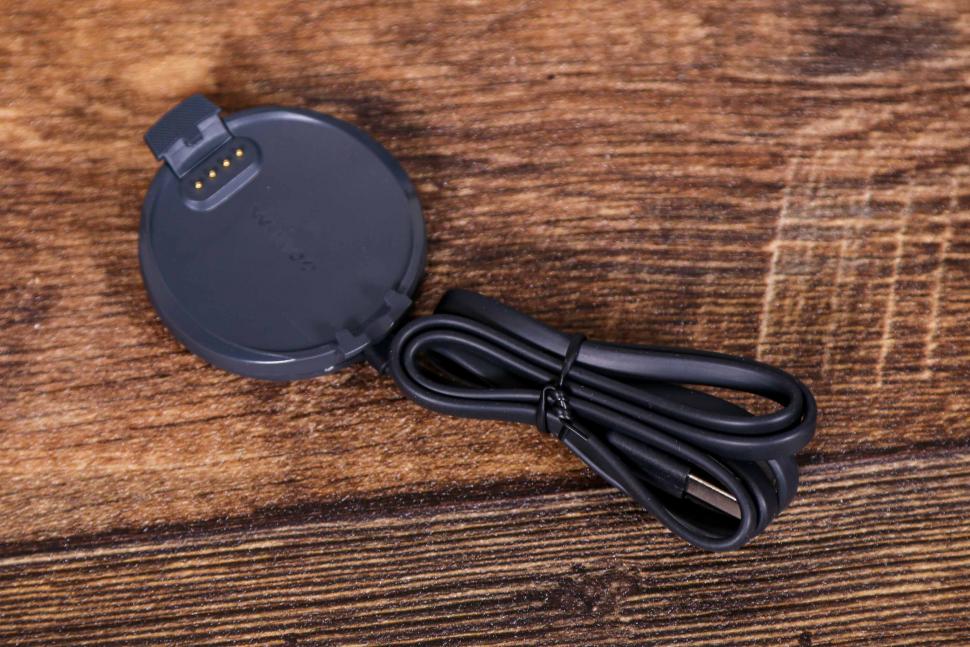
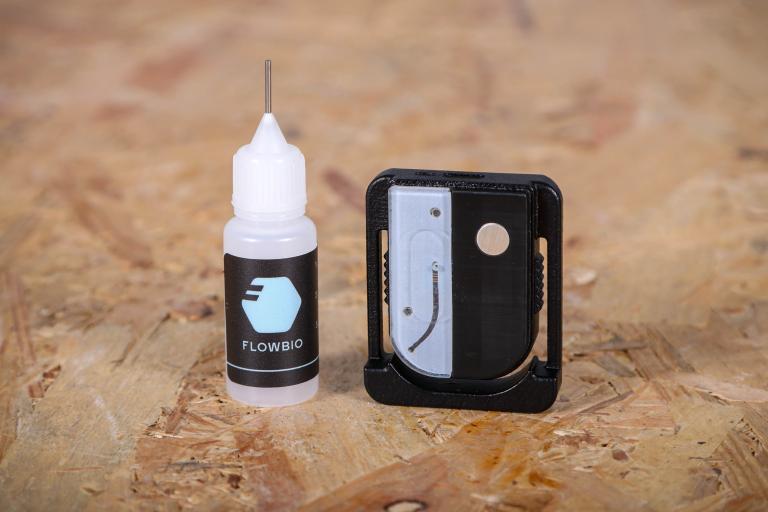
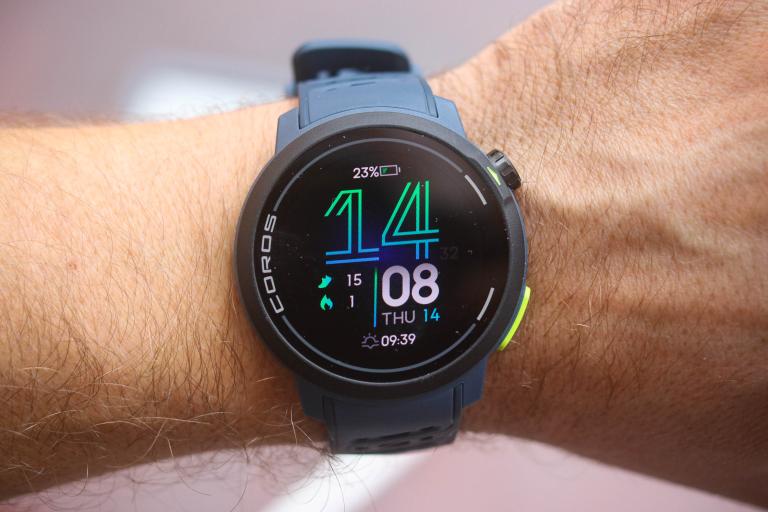
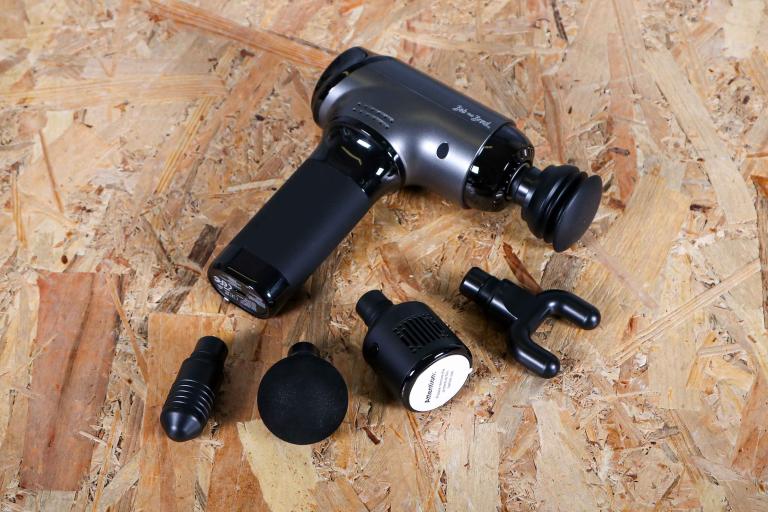
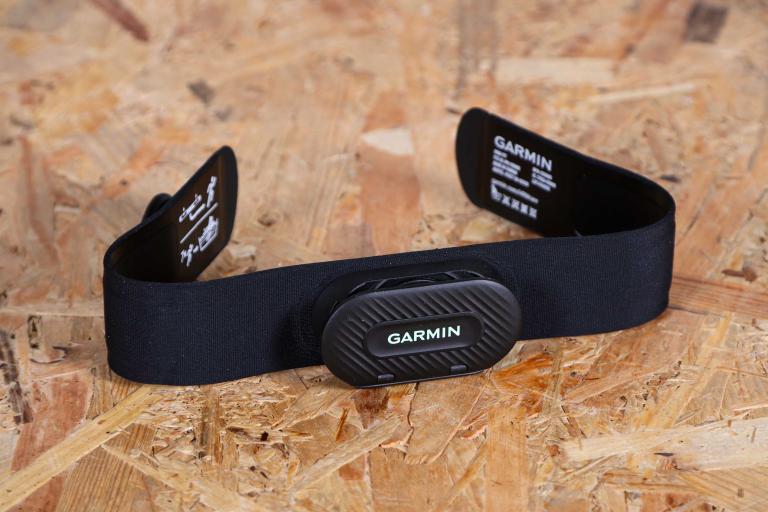
Add new comment
2 comments
I know all wrists are different, but a photo showing someone wearing it (rather than just holding it) might be useful.
Lack of navigation seems like an oversight to me. I've been considering upgrading my aged Garmin Vivoactive HR and that's one feature that I definitely want - whether on holiday or just mixing up my usual running routes, it would be nice to be able to plan a route and follow it without worrying about getting lost.
Mine aren't. apart from being mirror images, they're to all intents and purposes identical.....